On September 26 and 27 in Ho Chi Minh City and Hanoi, Takeda Pharmaceutical Vietnam Co., Ltd. cooperated with the Pasteur Institute of Ho Chi Minh City and the Vietnam Preventive Medicine Association to organize a series of scientific seminars on Vaccines: New weapons in preventing dengue fever.
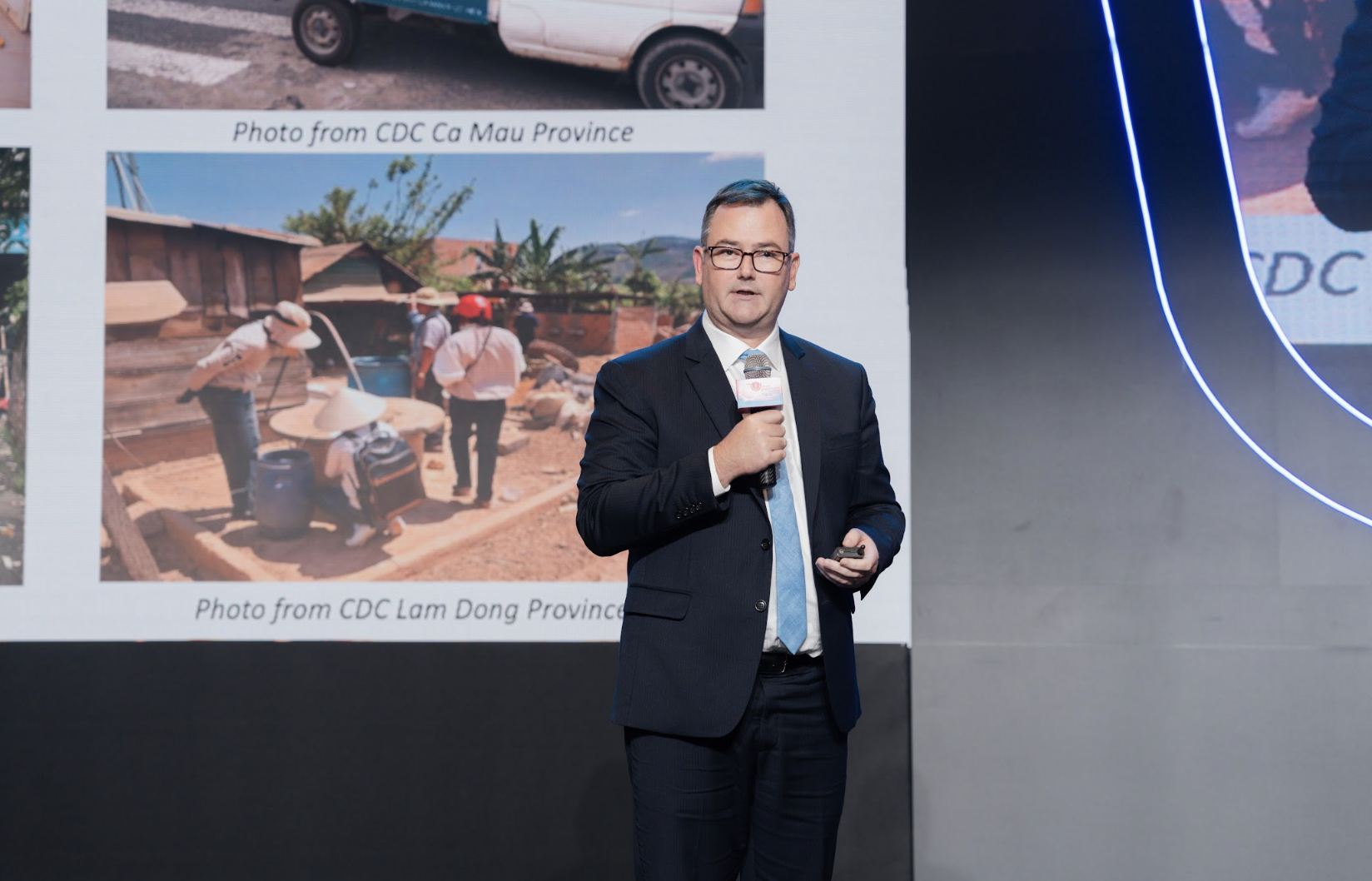
Dr. Derek Wallace - Global President of Takeda Vaccine presented on the application of new solutions in a comprehensive strategy for preventing and controlling dengue fever worldwide.
The aim of the Workshop series is to provide scientific information on the new dengue fever management strategy, and to introduce the dengue vaccine, which is available at public and private vaccination centers. The Workshop series also creates opportunities for health management and disease control agencies, national and international experts to exchange experiences and explore cooperation opportunities in dengue fever prevention and control. The dengue vaccine approved by the Ministry of Health in May 2024 is expected to be an effective complementary solution, contributing to the comprehensiveness of the current dengue fever prevention strategy.
Series of scientific events in two cities attract nearly 1,000 experts in epidemiology, prevention and treatment participated, along with representatives from government agencies such as the Ministry of Health, Departments of Health, Centers for Disease Control from provinces/cities in Vietnam, leading institutes on prevention, hospitals, the World Health Organization (WHO), the US Centers for Disease Control and Prevention, Japanese diplomatic and trade promotion agencies, and public and private vaccination centers across the country.
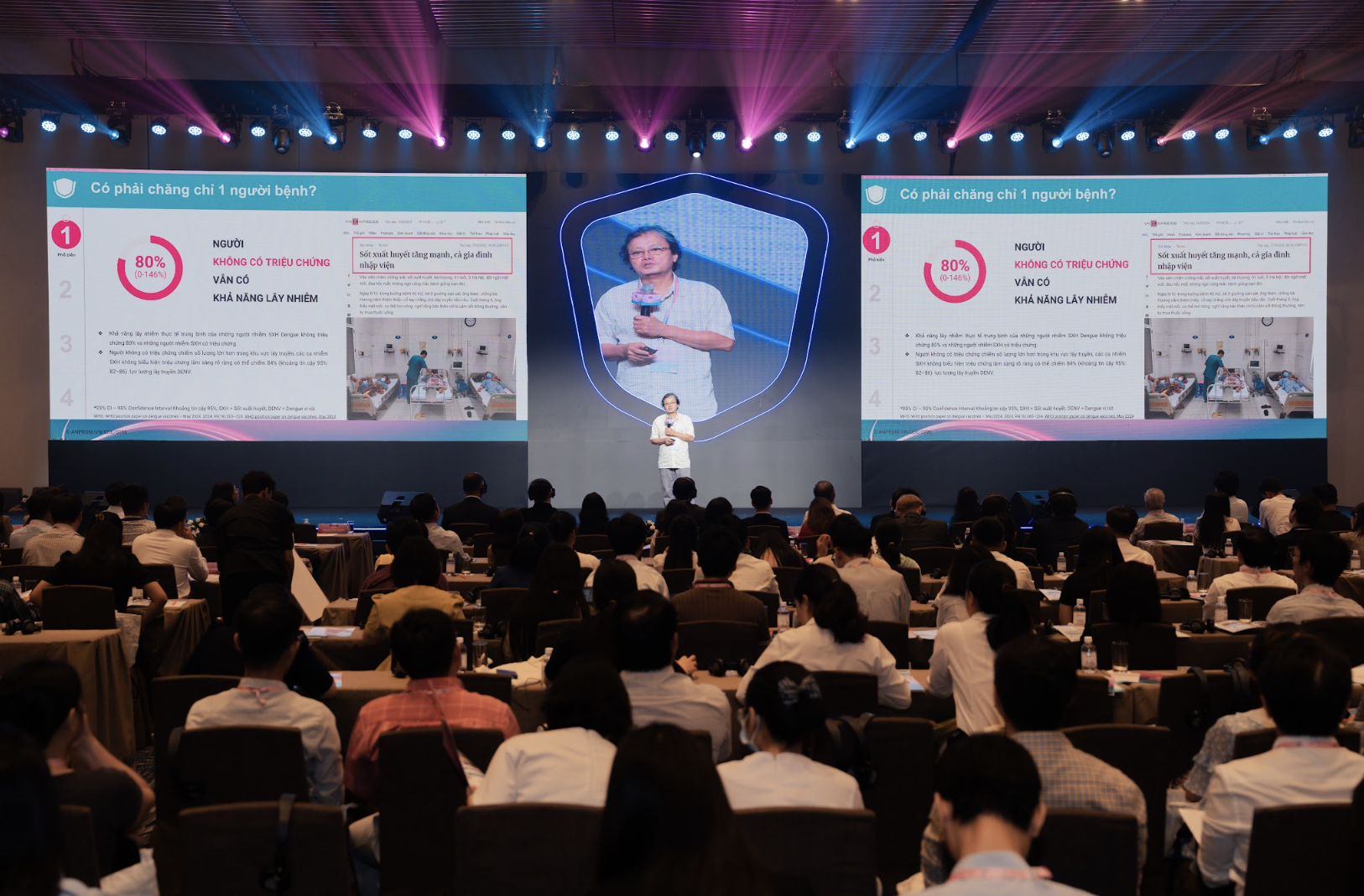
Dr. Truong Huu Khanh presents the burden of dengue fever from a clinical perspective in Vietnam.
Dengue fever is an acute infectious disease caused by the Dengue virus transmitted by Aedes mosquitoes. The disease is considered by the World Health Organization as one of the top 10 threats to public health.
Dengue fever is currently circulating in more than 100 countries, with about 390 million infections each year. The global incidence of the disease has increased 30-fold in 50 years due to climate change, rapid urbanization and many favorable conditions for travel and circulation of goods. According to WHO, Vietnam is among the countries suffering serious consequences from dengue fever. Experts warn that dengue fever is becoming more and more serious as it is no longer cyclical, with a tendency to expand epidemic areas. Previously, in the period 1980-2018, Vietnam recorded epidemic peaks every 10 years, then in the period 2019-2023 alone, Vietnam experienced 2 epidemic peaks in 2019 (with more than 300,000 cases) and 2022 (361,813 cases).
Associate Professor, Dr. Nguyen Vu Trung, Director of the Pasteur Institute in Ho Chi Minh City, emphasized: "Previously, the peak of dengue fever in Vietnam often occurred during the rainy season, from June to November every year. But recently, medical facilities have recorded cases every month, including life-threatening cases. Moreover, while previously outbreaks were often concentrated in the Central and Southern regions, dengue fever has now been gradually recorded in the North. This situation shows the need to increase resources and supplement proactive dengue fever prevention measures such as vaccination when a vaccine is available."
As co-chair of the workshop in Hanoi, Director of the National Institute of Biotechnology and Epidemiology (NIHE), President of the Vietnam Preventive Medicine Association, Prof. Dr. Phan Trong Lan said: "In recent years, the Government, the Ministry of Health, inter-sectoral agencies and the Vietnamese people have made great efforts to achieve many positive results in preventing and controlling dengue fever, especially reducing the mortality rate. The introduction of dengue fever vaccine together with traditional preventive measures such as vector control, mosquito bite prevention and raising public awareness is an important step forward in the fight against dengue fever. This integrated prevention strategy, if effective, will help reduce the burden of dengue fever on the people and the health system, thereby contributing many benefits to other socio-economic activities."
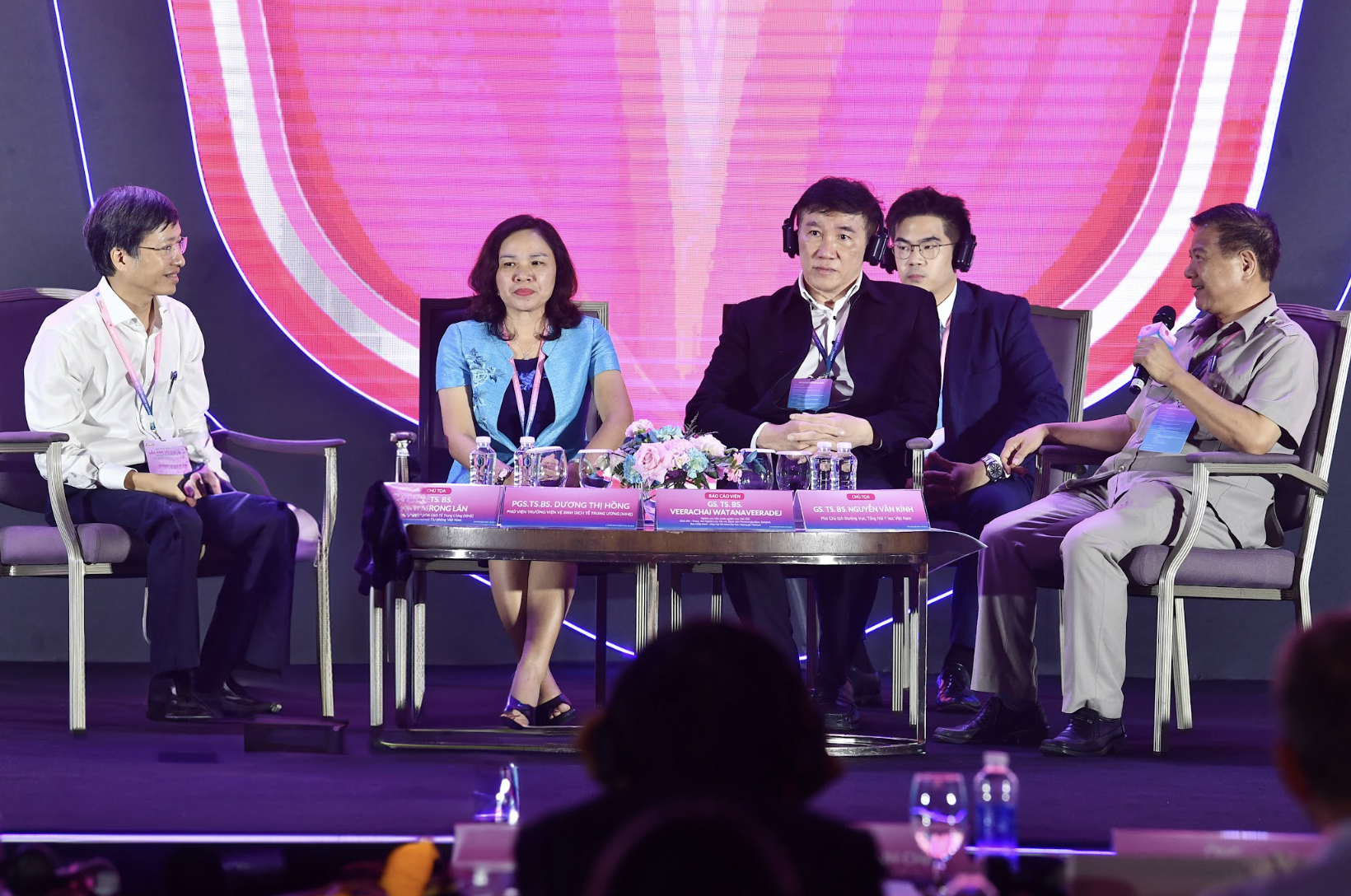
Discussion session to exchange experiences in dengue fever prevention between domestic and foreign experts
Prof. Dr. Nguyen Van Kinh - Permanent Vice President of the Vietnam Medical Association, co-chair of the conference in Hanoi said: "Dengue fever not only carries many risks of causing serious complications such as shock, severe bleeding, organ failure or death, but also puts pressure on individuals, families and the health system. There is currently no specific medicine to treat dengue fever, and the disease worsens unpredictably, making treatment particularly difficult. Therefore, we need a stronger and more proactive prevention strategy to reduce the burden of this disease."
At the workshop, Prof. Dr. Veerachai Wattanaveeradej, Director of the Vaccine Research Center at Bangkok Phram Hospital, and Executive Director of the Royal College of Pediatricians and the Pediatric Society of Thailand, presented on the safety profile and post-vaccination surveillance of dengue fever from practical experience in Thailand - one of the top 30 countries suffering severe consequences from dengue fever.
Takeda representative, Dr. Derek Wallace, President of Global Vaccines, Takeda Pharmaceutical Corporation presented the application of new solutions in the comprehensive strategy for dengue prevention and control in the world. Takeda's dengue vaccine has been recommended by the Strategic Advisory Group of Experts (SAGE) for use in countries with high levels of dengue epidemic to maximize the effectiveness of dengue prevention for the community.
“While current prevention measures are necessary, the addition of a vaccine with broad-spectrum protection represents a breakthrough in the fight against dengue,” said Dr. Derek Wallace. “The development of Takeda’s dengue vaccine is an important step forward in Takeda’s mission to develop new vaccines to address the most difficult health challenges and improve the lives of people around the world. The World Health Organization’s recommendation for Takeda’s dengue vaccine demonstrates that it should be used as an important tool in an integrated strategy to reduce the global threat of dengue.”
“Interdisciplinary collaboration plays a vital role in the fight against dengue. Takeda is extremely proud to join hands with government agencies, healthcare professionals, medical societies, universities and research institutes, and other partners in the fight against dengue in Vietnam,” said Dion Warren, General Manager, India and Southeast Asia, Takeda. Given the significant health risks posed by dengue in the country, an integrated strategy using dengue vaccines as a complementary tool to existing tools would be a great hope. We can be optimistic about a future where comprehensive prevention strategies will help change the lives of millions of people in Vietnam and around the world.”
In addition, the exhibition "Three decades of dengue fever prevention and control journey" was held right before the series of events to express gratitude and acknowledge the efforts in dengue fever research, management, prevention, treatment, monitoring and response of the health system as well as other interdisciplinary agencies. The exhibition was chaired in Ho Chi Minh City by Associate Professor, Dr. Nguyen Thi Kim Tien, former Minister of Health and in Hanoi by Professor, Dr. Vu Sinh Nam, Chief of Office, Vietnam Preventive Medicine Association, Senior Advisor on dengue fever, former Deputy Director of the Department of Preventive Medicine, Ministry of Health.
Takeda’s dengue vaccine is currently approved in more than 40 countries, including the European Union, Brazil, Argentina, Colombia, Indonesia, Thailand, Malaysia and Vietnam. In Brazil, Argentina and Indonesia, the vaccine is available to people as part of national and regional immunization programs. In addition to being recommended for use by the World Health Organization, Takeda’s vaccine has also been prequalified by the World Health Organization, indicating that the vaccine has been assessed as being of good quality and is considered an important prevention tool and is suitable for mass immunization programs.
Vietnam.vn



![[Photo] Many young people patiently lined up under the hot sun to receive a special supplement from Nhan Dan Newspaper.](https://vphoto.vietnam.vn/thumb/1200x675/vietnam/resource/IMAGE/2025/5/18/6f19d322f9364f0ebb6fbfe9377842d3)

![[Photo] Ready for the top competitions of Vietnamese table tennis](https://vphoto.vietnam.vn/thumb/1200x675/vietnam/resource/IMAGE/2025/5/18/9c547c497c5a4ade8f98c8e7d44f5a41)






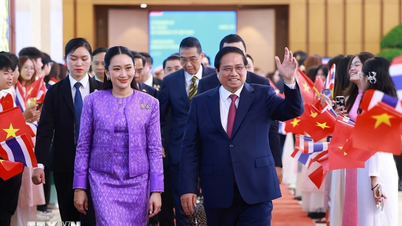

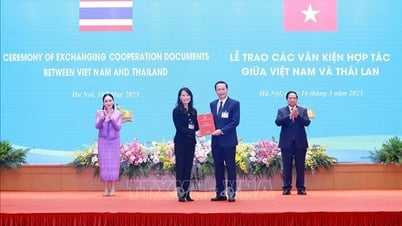



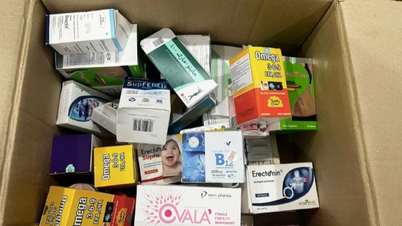

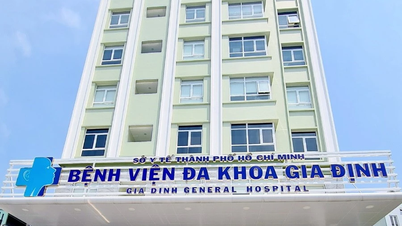





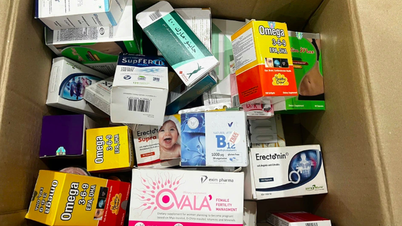
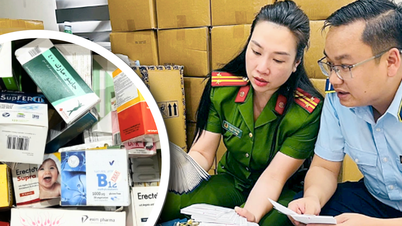







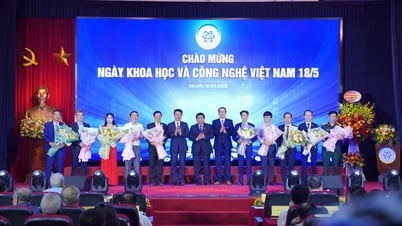


![[Photo] General Secretary To Lam visits exhibition of achievements in private economic development](https://vphoto.vietnam.vn/thumb/1200x675/vietnam/resource/IMAGE/2025/5/18/1809dc545f214a86911fe2d2d0fde2e8)













































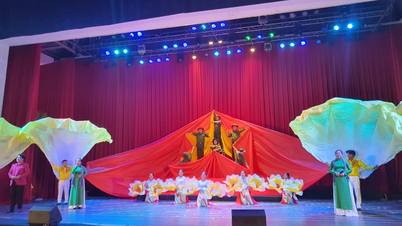



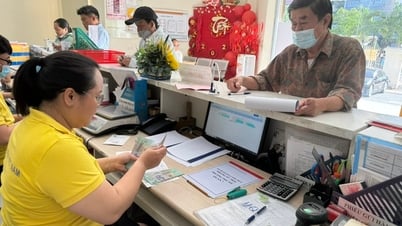


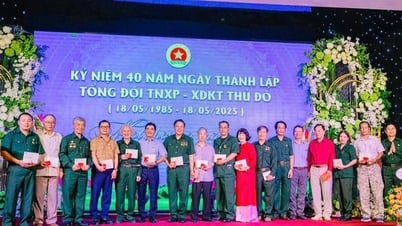

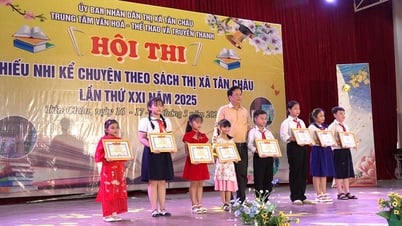










Comment (0)